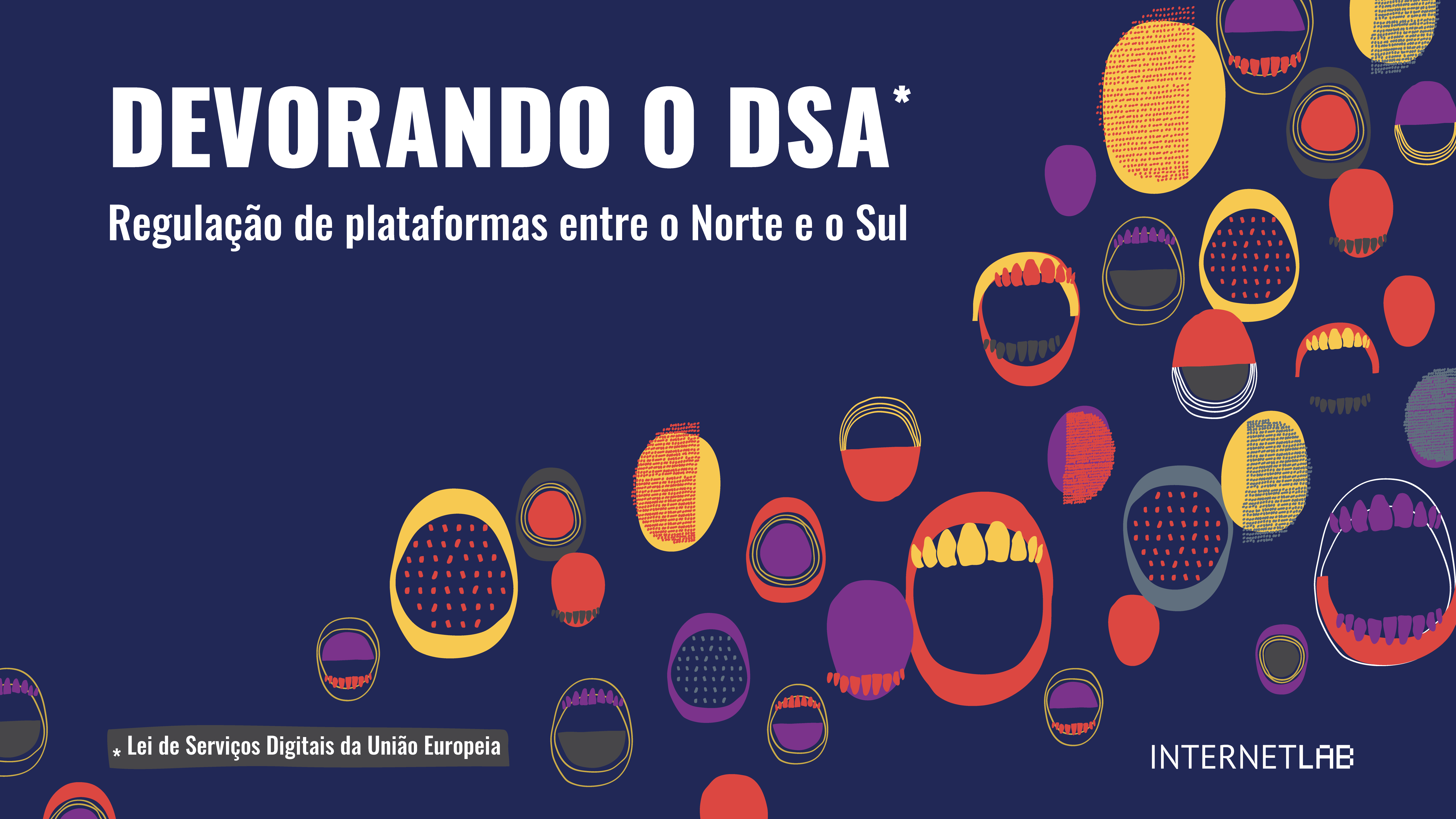
SERIES: Platform regulation between North and South
Devouring the DSA: InternetLab’s new project looks at how the new platform’s regulation in Europe engages with other contexts and realities.
In the first half of the 20th century, Brazilian Artists founded a cultural movement called “Anthropophagy”, which proposed devouring and digesting foreign references and, within this process, developing practices anchored in the Brazilian reality. With this mindset, InternetLab launches a new project about digital platforms regulation, “Devouring the DSA – Platform regulation between North and South”. The project begins with interviews with non-European and non-US experts on the impact of European legislation and its concepts around the globe, especially in countries like Brazil.
Check out the interviews that already happened below:
The impact of European regulation on the global discussion
The enactment of the Digital Services Act (DSA) in November 2022 is one of the most important milestones in the global discussion about regulating digital platforms such as Youtube, Instagram and TikTok. Its discussion, approval and implementation has dominated the vast majority of policy debates on the subject both inside and outside of the European region. Whether due to the importance of establishing normative parameters – for example, rules on transparency for the operation of digital platforms – or for pioneering new methods and procedures, the DSA is already one of the greatest contemporary references for the subject. The law’s concepts have inspired lawsuits in international forums and generated concerned reactions even on the other side of the Atlantic.
But how do non-European countries (or even countries in other conditions of economic development and position on the geopolitical scenario) look – or should look – at this process? How do their regulatory traditions appropriate and translate the concepts and methods brought by the European process into their realities?
The discussion is not simple. The European law was enacted less than a year ago, and there hasn’t been enough time for us to dwell into the consequences of its application, even in Europe. Moreover, its dispositions are complex to the layman’s eye, and are designed for specific legal and political cultures that are sometimes far removed from realities such as Brazil’s. Exporting them directly to other realities can have unwanted consequences when they are implemented.
“Devouring and digesting” foreign references in the Brazilian debate
We place InternetLab’s new special project, “Devouring the DSA – Platform regulation between North and South”, in the efforts to critically understand the trends brought by the DSA. The aim is to encourage analytical thinking about new types of regulation created in the European environment, based on the assumption that these ideas need to go through a process of “ingestion and digestion”. Therefore, on the one hand, we understand that sharing experiences is beneficial, especially when the problems are collective; on the other hand,we recognize that, depending on how such movements are made, they can end up subjecting different realities to a decontextualized reproduction of a dynamic that ignores local particularities, finding it difficult to address the problems they aim to solve.
Taking the Brazilian platform regulation process as a starting point, “Devouring the DSA” deepens the debate and the study of the concepts that have landed in Brazil since the enactment of the European legislation.
What do we intend to do?
Many questions are raised in this scenario. What does it mean to do a systemic risk analysis under the DSA? What about in a country like Brazil? How can we think about mechanisms for researchers to access data outside the context of the European Union, where investment in universities is very different from the ones made in Latin America? How can we discuss the use of audits to supervise the activity of platforms in scenarios where corporate corruption is constantly diagnosed as a part of the political crisis, where the very concept of democracy is fragile?
The first steps of this project will be exploratory, seeking to produce reflections on how to “devour” European law and its concepts taking the point of view of experts in the field of internet policy who are not based in Europe or the United States. Through interviews, we seek to broaden the lexicon and bring more layers of analysis to topics such as access to platform data by researchers, the role of the State in regulating platforms and the use of human rights due diligence mechanisms to supervise the activities of social networks, for example. The interviews were conducted via Zoom and will be posted in their entirety, with subtitles. Follow InternetLab’s profiles in social media and website to keep posted about the new content!